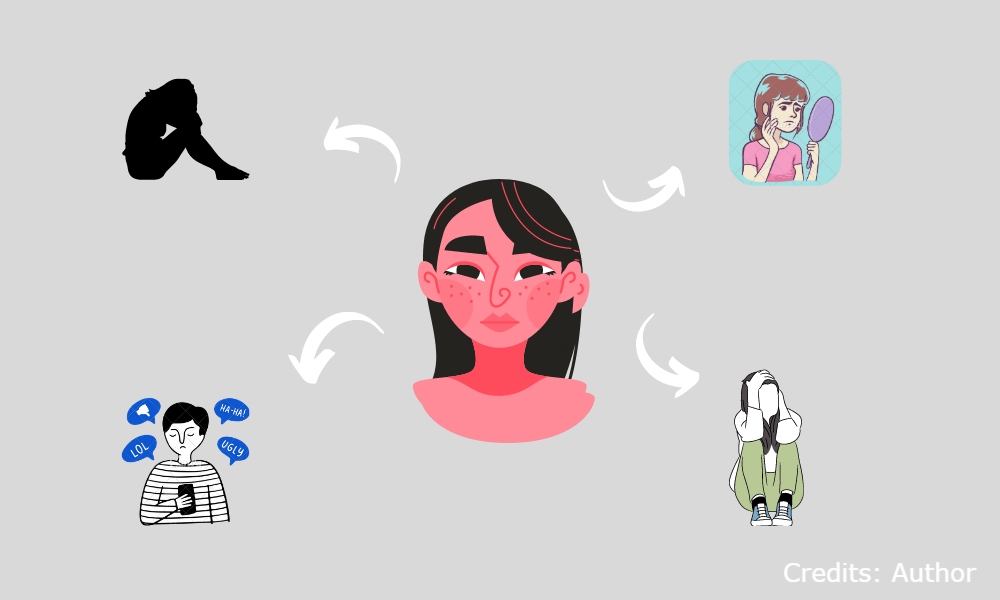Study suggests that young people struggle with mental health issues due to portrayal of unrealistic, blemish-free skin on social media.
Anusha Bose | April 27h, 2021
Bangalore: Priyasmita Dutta has often come across pictures of blemish-free skin of perfect models, while scrolling through Instagram. While looking at the photographs, she has constantly tried to pick out her own flaws, which made her feel under-confident.Like others, she has also become a victim of social media influence which has made her conscious about her appearance.
She is one of the many people, who has been affected due to the portrayal of porcelain-like, skin, which has been dominating social media for years. “For the longest time, I’d look into the mirror to find flaws in myself. I knew what to buy next to cover up my imperfections,” said the university student.
On the one hand, social media brings people, all over the world, closer to each other but on the other, it promotes unrealistic beauty standards among people, which leads to negativity and insecurities about their appearances. A study shows that out of 50 acne patients, 19 of them (38 percent) were suffering from depression, and it was more among women. Thirty four percent were suffering from social anxiety and 21 percent had suicidal thoughts.
Annwesha Mukherjee, a post-graduate student of Journalism, had started to doubt herself due to the flawless, glamorous, ‘healthy’ skin which has been shown on social media. “The beauty standards are unrealistic these days! I’m never satisfied with how my skin feels or face looks as a result, I’ve started doubting myself,” said the journalism student.
Suhrita Bose is also among the many people who felt insecure because of her acne. “Acne and pimples are quite natural, but these posts make us conscious about our skin and how impossible it is to achieve that standard,” said Suhrita.
Acne positivity
Even though social media, in many ways, has contributed in worsening the mental health of people, it has also, as a result promoted self-acceptance. Bare faced women with acne, blemishes, skin issues have uploaded their pictures over Instagram, showing that these are normal.
Poulami Bhowmick, who is a post graduate student and also, a beauty blogger, supports this movement. “It is important to show the unfiltered, bare skin to the outer world. These movements are small steps towards self-acceptance, and as a result, they should be promoted more,” said the beauty blogger.
Ayushi Mitra also has been suffering from acne for a long period of time. But the acne positivity movement has helped a lot in accepting herself. “The acne positivity movement on Instagram reinforced my belief that skin texture, acne, scars, blackheads, whiteheads are a part of humans. It has helped me to stop caring what others thought about my skin. It’s my skin after all.” said Ayushi.
Shobha Managoli, who is a Consultant Clinical Psychologist, said, “Deep-rooted anxiety about oneself, being self-critical etc are some of the mental health challenges related to appearances.”
“Peer groups focus on appearances and we all want to be accepted by them. Some harsh jokes can lead to shaming of others and thus, create trauma in the minds of the people,” added Shobha.




